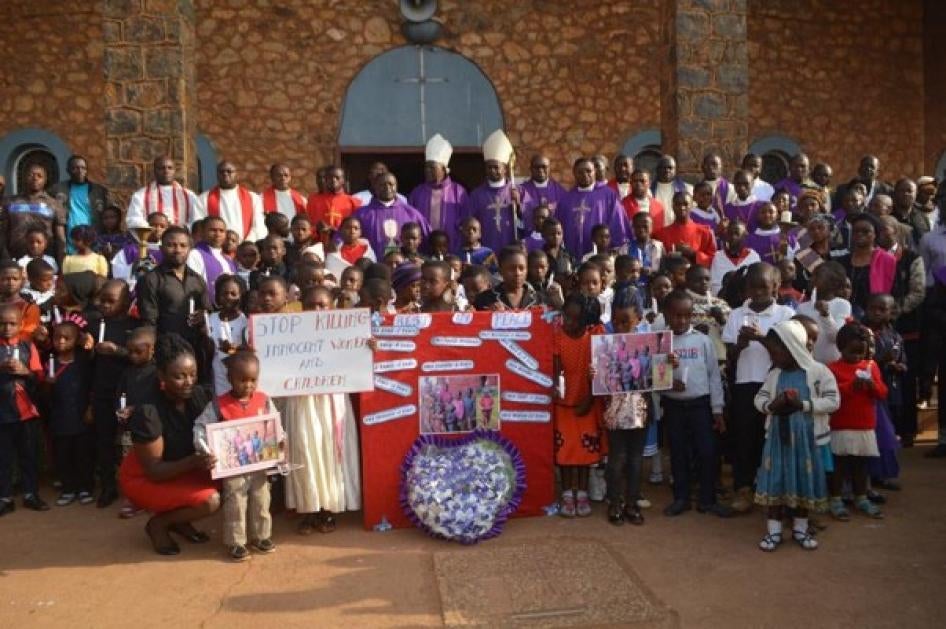Three years ago, we uncovered a gruesome massacre in Cameroon’s northwest region. Government forces and armed ethnic Fulani killed at least 21 civilians in Ngarbuh village, including 13 children and one pregnant woman. One survivor, who witnessed the killing of his entire family, including seven children, told us: “I saw the military shooting my family members one by one as they attempted to escape. They shot our mother first. Then, they shot the children, whose bodies all fell on her.”
The Ngarbuh killings were one of the Cameroonian security forces’ worst atrocities since late 2016 when the crisis erupted in the country’s Anglophone regions, where armed separatists are seeking independence for the country’s minority Anglophone population.
The government initially denied that its security forces were responsible and embarked on a smear campaign against human rights organizations and media that exposed the massacre. But following international pressure, President Paul Biya established a commission of inquiry on March 1, 2020. The government then admitted its security forces bear some responsibility and announced the arrest of at least two soldiers and a gendarme in June 2020.
The Ngarbuh trial opened on December 17, 2020, before a military court in Yaoundé, Cameroon’s capital. When the trial was announced, it was a welcome step and was seen as a test case that could break the perpetual cycles of impunity in Cameroon.
But since then, there has been little progress. The trial, meant to restart last November, is now slated to resume February 16, just two days after the 3rd anniversary of the massacre. The continued slow pace raises real concerns about whether the military justice system can deliver justice, and if so, when? Additionally, the location of the trial in Yaoundé, 450 kilometers from Ngarbuh, means there will be limited to no access and participation for victims’ families and potential witnesses.
The Ngarbuh massacre was not an isolated event in Cameroon’s Anglophone regions. Since February 14, 2020, numerous civilians have been killed by both government forces and separatists. While other blatant killings have generated inquiries, the only constant over the years has been the lack of accountability for the growing number of human rights abuses committed by both sides.
The resumption of the trial this week offers another opportunity to demonstrate that the military system can deliver accountability and send a signal to would-be violators that these types of crimes are taken seriously. If it doesn’t, the message to the victims’ families will be that the military has little interest in justice.









